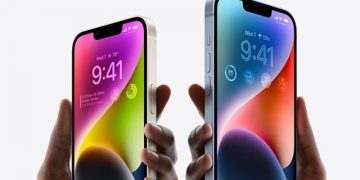In context: Judging by the lawsuits alone, companies always saying that Apple “forces” it to pay a premium for something that would otherwise be cheaper or free were it not for its walled garden. Much of this noise comes from game and app developers, but now, banks are taking issue with Apple Pay’s NFC system.
Apple could face a new antitrust lawsuit in the coming months. Bloomberg notes that Affinity Credit Union (ACU), out of Iowa, has hired representation to contest Apple’s tap-to-pay system. Its lawyers are looking into whether they can create a class-action case of the complaint.
The plaintiff argues that Apple has created an illegal monopoly with the iPhone’s near-field communication (NFC) payment system. Customers can add their ACU credit and debit cards to their iPhone wallets, but Apple charges fees for every purchase.
According to the filing, Apple charges up to 0.15 percent on every transaction. These charges make Apple approximately $1 billion per year. The plaintiff believes this is unfair since there are no fees associated with Android’s similar wallet function. On the surface, it seems relatively frivolous — each company should be able to charge or not in fair competition.
However, ACU’s attorneys argue that Apple forces credit card issuers to use Apple Pay, which exists outside of just a function of the wallet app. The legal team also claims that Apple’s terms of service say that banks cannot pass Apple Pay fees to iPhone users. Thus iPhone customers have little to complain about or reason to look for a cheaper competing wallet app.
“When you compare the functionality of Apple Pay to mobile wallets available on Android devices — Google Pay, Samsung Pay — you’re essentially holding up a mirror; they are essentially identical,” said Steve Berman, Hagens Berman co-founder and managing partner, one of the two firms representing ACU. “And yet, the same service on Android that card issuers pay absolutely nothing for costs them a collective $1 billion annually through Apple Pay. The reason for this is simple. There is competition on Android devices, with multiple wallets offering contactless payments, whereas Apple has barred all rivals, making Apple Pay the only option.”
The lawsuit is looking to force Apple into changing its NFC payment policies to open up competition on Apple devices to other wallet apps. It also wants the company to pay back card issuers the fees that it has “illegally” charged them. Although Hagens Berman would like to see the case moved to a class action, it is up to a judge to decide if the suit warrants a larger plaintiff pool.
Image credit: Mike Allan Pellin
Source by www.techspot.com




























